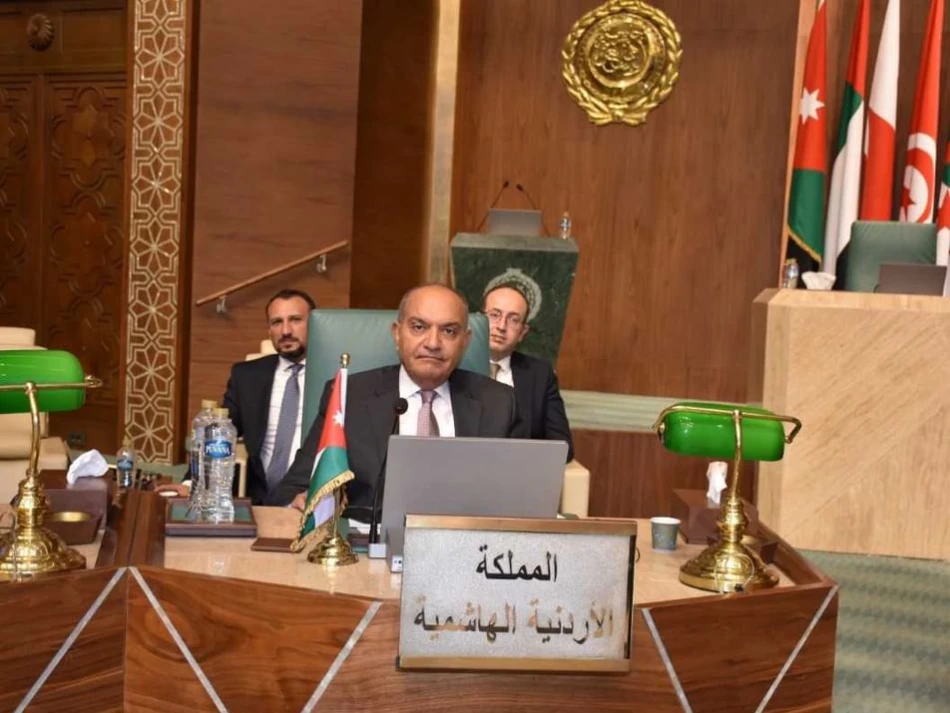
UAE's Historic Support for Palestinian People Applauded by Jordanian Arab League Envoy
UAE-Jordan Alliance Emerges as Leading Force in Gaza Humanitarian Crisis
A strategic partnership between the United Arab Emirates and Jordan has positioned the two nations at the forefront of humanitarian efforts in Gaza, with Jordanian Ambassador Amjad Al-Adaileh praising the UAE's comprehensive relief operations that include hundreds of aircraft deliveries, field hospitals, and daily convoy operations through Jordanian territory. This coordinated response represents one of the most significant Arab-led humanitarian initiatives in the ongoing Gaza crisis.
Scale of the Relief Operation
The UAE's humanitarian campaign, directed by President Sheikh Mohammed bin Zayed Al Nahyan, has deployed an extensive logistics network that rivals international relief organizations. The operation encompasses multiple delivery methods: aerial drops, maritime shipments, and ground convoys carrying food, medical supplies, and shelter materials to Gaza's population.
Ambassador Al-Adaileh, Jordan's permanent representative to the Arab League and ambassador to Egypt, highlighted the establishment of a UAE field hospital in Gaza as a cornerstone of the relief effort. This medical facility operates alongside Jordanian field hospitals, creating a bilateral healthcare network serving Palestinian civilians.
Daily Operations and Infrastructure
The partnership has established what officials describe as a "land bridge" through Jordan, with dozens of supply trucks entering Gaza daily. This ground route complements joint aerial operations, where both nations coordinate airdrops to reach areas inaccessible by traditional delivery methods.
Strategic Implications for Regional Diplomacy
This UAE-Jordan collaboration signals a shift toward practical, action-oriented Arab diplomacy that prioritizes immediate humanitarian impact over political rhetoric. The partnership leverages Jordan's geographic proximity and established logistics networks with the UAE's financial resources and operational capabilities.
The initiative also demonstrates how normalized relations between Israel and the UAE have enabled more effective humanitarian access, allowing Gulf resources to reach Palestinian territories through diplomatic channels that might have been unavailable in previous conflicts.
Beyond Traditional Aid Models
Unlike conventional international aid that often faces bureaucratic delays, this bilateral approach has streamlined delivery mechanisms. The establishment of field hospitals by both nations creates sustainable medical infrastructure rather than temporary relief, suggesting a long-term commitment to Gaza's healthcare needs.
Regional Context and Broader Impact
This humanitarian partnership occurs against the backdrop of evolving Middle Eastern alliances, where Gulf states increasingly coordinate with Jordan on regional stability issues. The Gaza relief operation serves as a template for future crisis response, demonstrating how resource-rich Gulf nations can partner with strategically located allies to maximize humanitarian impact.
The initiative also extends beyond Gaza's borders, with both countries accepting wounded Palestinians for treatment in their domestic hospitals, creating a regional medical network that addresses the crisis's broader healthcare implications.
Measuring Success Through Action
Ambassador Al-Adaileh emphasized that "tangible actions and assistance represent the greatest evidence of Arab efforts to support Palestinians in Gaza." This focus on measurable outcomes reflects a pragmatic approach that prioritizes delivery over declarations, potentially setting new standards for regional humanitarian response.
The sustained nature of these operations, with daily convoy deliveries and permanent medical facilities, indicates both nations view this as a long-term commitment rather than emergency relief, suggesting confidence in their ability to maintain operations despite ongoing regional tensions.
Most Viewed News

 Sara Khaled
Sara Khaled






